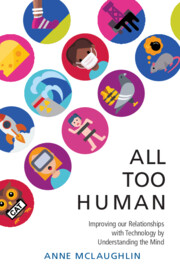Book contents
- All Too Human
- All Too Human
- Copyright page
- Contents
- Figures
- Tables
- Preface
- Acknowledgments
- Introduction
- 1 “Brace for Impact”
- 2 Bad Water
- 3 Hybrid Vigor
- 4 A Mind Divided
- 5 All the Light We Cannot See
- 6 Mistakes
- 7 History Repeating?
- 8 Needles in Haystacks
- 9 Apt Pupils and Alien Invaders
- 10 A Relative to Truth
- 11 Old Principles for New Worlds
- Conclusion
- Notes
- References
- Index
10 - A Relative to Truth
Published online by Cambridge University Press: 27 January 2022
- All Too Human
- All Too Human
- Copyright page
- Contents
- Figures
- Tables
- Preface
- Acknowledgments
- Introduction
- 1 “Brace for Impact”
- 2 Bad Water
- 3 Hybrid Vigor
- 4 A Mind Divided
- 5 All the Light We Cannot See
- 6 Mistakes
- 7 History Repeating?
- 8 Needles in Haystacks
- 9 Apt Pupils and Alien Invaders
- 10 A Relative to Truth
- 11 Old Principles for New Worlds
- Conclusion
- Notes
- References
- Index
Summary
The purpose of this chapter is to discuss the various kinds of memories we can have, when and why we forget, and how good systems and technology can help us. The chapter starts with the story of Lenny LeClair, a man permanently disabled after surgeons forgot multiple sponges in his abdomen. The story ends with a question: How could doctors forget something with such high consequences? And how could they forget so frequently? The examples move to even more dire consequences: people who were forgotten by dive boats while out scuba diving. Some lived, many died. I end with an example from my own life: forgetting to go for a run after a successful 1,580 days of a running streak. Again, the question is how we can forget such important information. I talk about how to avoid memory errors and failures. Tactics include memory training, such as using the method of loci to remember information. Lastly, I cover false memories and how they are created with application areas in police questioning of witnesses, especially children, and the horrors of the "recovered memory movement" thirty years ago.
- Type
- Chapter
- Information
- All Too HumanUnderstanding and Improving our Relationships with Technology, pp. 130 - 146Publisher: Cambridge University PressPrint publication year: 2022



